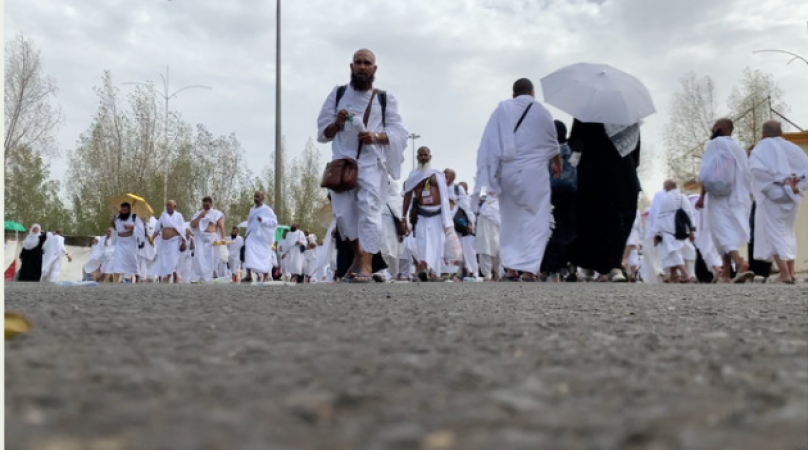
Colombo: After the government lifted a 2022 policy requiring pilgrims from the crisis-ridden country to pay their travel costs in foreign currency, Sri Lanka expects to use its entire Hajj quota this year.
Only 960 pilgrims, or slightly more than half of the quota from the previous year, performed the Hajj in 2022, the year Sri Lanka experienced its worst economic crisis since gaining independence in 1948 and went into default on its obligations to pay off its foreign debt.
Muslims were permitted to make the pilgrimage under the condition that they paid for their expenses in foreign currency, which the government claimed would not burden the national economy, as the cost of sending worshippers to Makkah — estimated at $10 million — was too high for the country to bear.
Also Read: Watchdog warns that US funding may be going to the Taliban
This year, since the requirement is no longer in effect, Sri Lanka anticipates using all 3,500 of its allotted pilgrims.
According to Ibrahim Sahib Ansar, who is in charge of Hajj logistics at the Ministry of Religious Affairs, "this year the government of Sri Lanka has not imposed such restrictions, as (the) Sri Lankan economy has improved."
By Wednesday, the Ministry of Religious Affairs had received about 2,200 registrations.
3,500 pilgrims will travel this year, we are confident," Ansar said. "Sri Lankans are more enthusiastic and interested in performing Hajj at this time."
The 22 million people who make up the majority Buddhist country's population are Muslims to the tune of just under 10%.
Also Read: The Xiaomi 13 Ultra Xiaomi's newest flagship phone has been unveiled
The Muslim minority is committed to engaging in the spiritual journey that is one of Islam's five pillars of faith, despite the fact that their nation's economy is still not stable.
Regardless of their financial situation, Sri Lankan Muslims prioritise religious obligations like prayer, fasting, and the Hajj, according to Ansar.
"Muslims in Sri Lanka are typically very devout and spiritual people. Since many Muslims view performing the Hajj as a significant obligation, they put money aside for several years in order to do so.
To organise Sri Lanka's Hajj operations this year, the government has appointed more than 100 travel agents.
The enthusiasm for the pilgrimage and the sheer number of pilgrims, according to Rizmi Reyal, president of the All-Ceylon Hajj Tour Operators Association, were indications that normalcy was returning to the nation.
Also Read: Pope Francis presents King Charles with shards of Christ's cross for Coronation
In comparison to the difficulties experienced the previous year, he said, "the situation in the country is returning to normal."
"Power is returning to normal, the people are optimistic, and the rupee is strengthening."